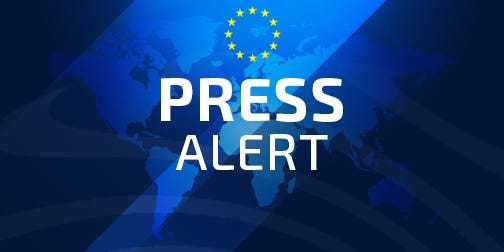Europe, Biden aligning on saving Iran deal before expanding on it
Consensus appears to be emerging between Europe, incoming US administration on saving Iran nuclear deal before trying to expand on it
Even before holding substantive consultations, Washington’s European allies appear to be coming to consensus with President-Elect Joe Biden’s stated intention to try to save the 2015 Iran nuclear deal before trying to expand on it. Biden has said that he would be willing to return the United States to the pact, formally known as the Joint Comprehensive Plan of Action (JCPOA), if Iran agrees to fully roll back steps it took to expand its nuclear program beyond the deal limits to protest President Trump’s imposition of maximum economic pressure after he quit the deal in 2018.
“This push for conditionality for a return to the JCPOA seems to be decreasing,” a European Union (EU) official, speaking not for attribution, told Diplomatic Monday, following a virtual meeting of the foreign ministers from the countries that oversee JCPOA implementation.
Instead, the focus is turning to the idea of stabilizing the deal we have and then go into additional cooperation rather than on a grand new deal, the EU official said.
“Ministers acknowledged the prospect of a return of the US to the JCPOA and underlined their readiness to positively address this in a joint effort,” a joint statement from the foreign ministers of the UK, France, Germany, Russia, China, Iran and the European Union, that comprise the Joint Commission, said.


“Everyone around the table agreed on the need to preserve the deal and to convince the US that it is much better to go back to the deal the way it is and without preconditions and without saying yes we want to add something more,” a senior EU official told the Guardian’s Patrick Wintour. “If we want Iran to go back to full compliance then we have to bring the economic rewards that we promised. Today the trade between the European states and Iran is lower than it was before the deal.”
The “basic message on all sides was let's revive the Iran deal without pre-conditions,” the Wall Street Journal’s Laurence Norman tweeted referring to the Joint Commission VTC ministerial Monday. “That's noteworthy in that suggests any ideas of getting Iran, US to agree to additional things before reviving accord [is] not favored right now.”
With only five months between his inauguration in January and Iranian presidential elections in June, Biden is expected to try to secure Iran’s return to its nuclear deal commitments before trying to renegotiate a follow-on deal, I reported at Just Security last month.
The rationale for a “clean” U.S. return to the JCPOA in exchange for Iran’s full return to the deal’s nuclear limits before trying to negotiate a possible add-on deal is that the window for rolling back Iran’s expansion of its nuclear program during the Trump administration’s tenure is so short. Iran is due to hold presidential elections in June 2021, in which Iran’s current second-term president Hassan Rouhani, who has favored engagement, cannot run again.
“Look, there’s a lot of talk about precision missiles and all range of other things that are destabilizing the region,” Biden told the New York Times’ Tom Friedman on December 2. But the fact is, “the best way to achieve getting some stability in the region” is to deal “with the nuclear program.”
Then, “in consultation with our allies and partners, we’re going to engage in negotiations and follow-on agreements to tighten and lengthen Iran’s nuclear constraints, as well as address the missile program,” Biden said.
It would take the Iranians four to six weeks to come back into full compliance, should they decide to do so, a United Nations official who works on Iran told me. “They have to dismantle a certain number of centrifuges [that go] beyond the limits in the JCPOA,” he said. “They have to dismantle some of the more advanced centrifuges [installed for] testing. They have to do no enrichment at the [fortified, underground site] at Fordo. They have to, most importantly, change the configuration of some of the [centrifuge] cascades so they don’t enrich above 3.67%. And bring the stockpile of LEU [low enriched uranium] down to 300kg.”
“At the end of that 4-6 week process, the IAEA can verify if Iran is in full compliance,” the UN official continued. “That is when OFAC [the U.S. Treasury Department’s Office of Foreign Asset Controls] could issue new guidelines” and reinstate licenses, and the Secretary of State could issue waivers of statutory sanctions, that would permit banks to facilitate financial transactions with Iran permitted under the JCPOA.
Iranian Supreme Leader Ayatollah Ali Khamenei last week signaled that Iran should seek sanctions relief even as he warned against trusting western powers.
“If the sanctions can be lifted, we should not hesitate for even an hour,” Khamenei said Wednesday (Dec. 16) at a meeting on the approaching one year anniversary of the Trump administration’s killing of Iran’s Islamic Revolutionary Guard Corps (IRGC) General Qassem Soleimani in a drone strike.
“If the sanctions can be lifted in a correct, wise, Iranian-Islamic, dignified manner, this should be done,” Khamenei continued, according to a translation of his remarks on his website. “But our main focus should be on neutralizing the sanctions, and the initiative for this is in your hands."



